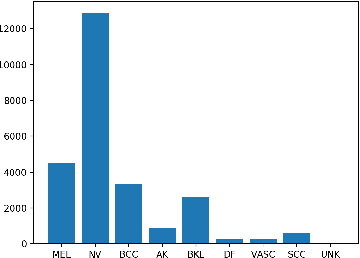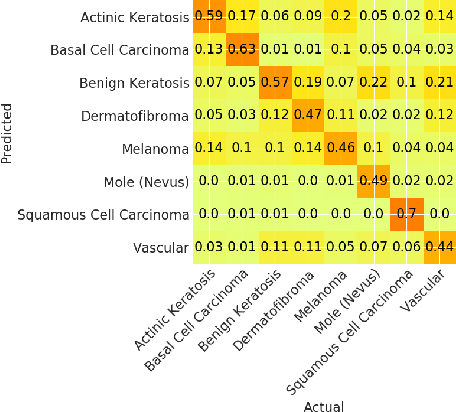Properties Of Winning Tickets On Skin Lesion Classification
Paper and Code
Aug 25, 2020



Skin cancer affects a large population every year -- automated skin cancer detection algorithms can thus greatly help clinicians. Prior efforts involving deep learning models have high detection accuracy. However, most of the models have a large number of parameters, with some works even using an ensemble of models to achieve good accuracy. In this paper, we investigate a recently proposed pruning technique called Lottery Ticket Hypothesis. We find that iterative pruning of the network resulted in improved accuracy, compared to that of the unpruned network, implying that -- the lottery ticket hypothesis can be applied to the problem of skin cancer detection and this hypothesis can result in a smaller network for inference. We also examine the accuracy across sub-groups -- created by gender and age -- and it was found that some sub-groups show a larger increase in accuracy than others.
 Add to Chrome
Add to Chrome Add to Firefox
Add to Firefox Add to Edge
Add to Edge